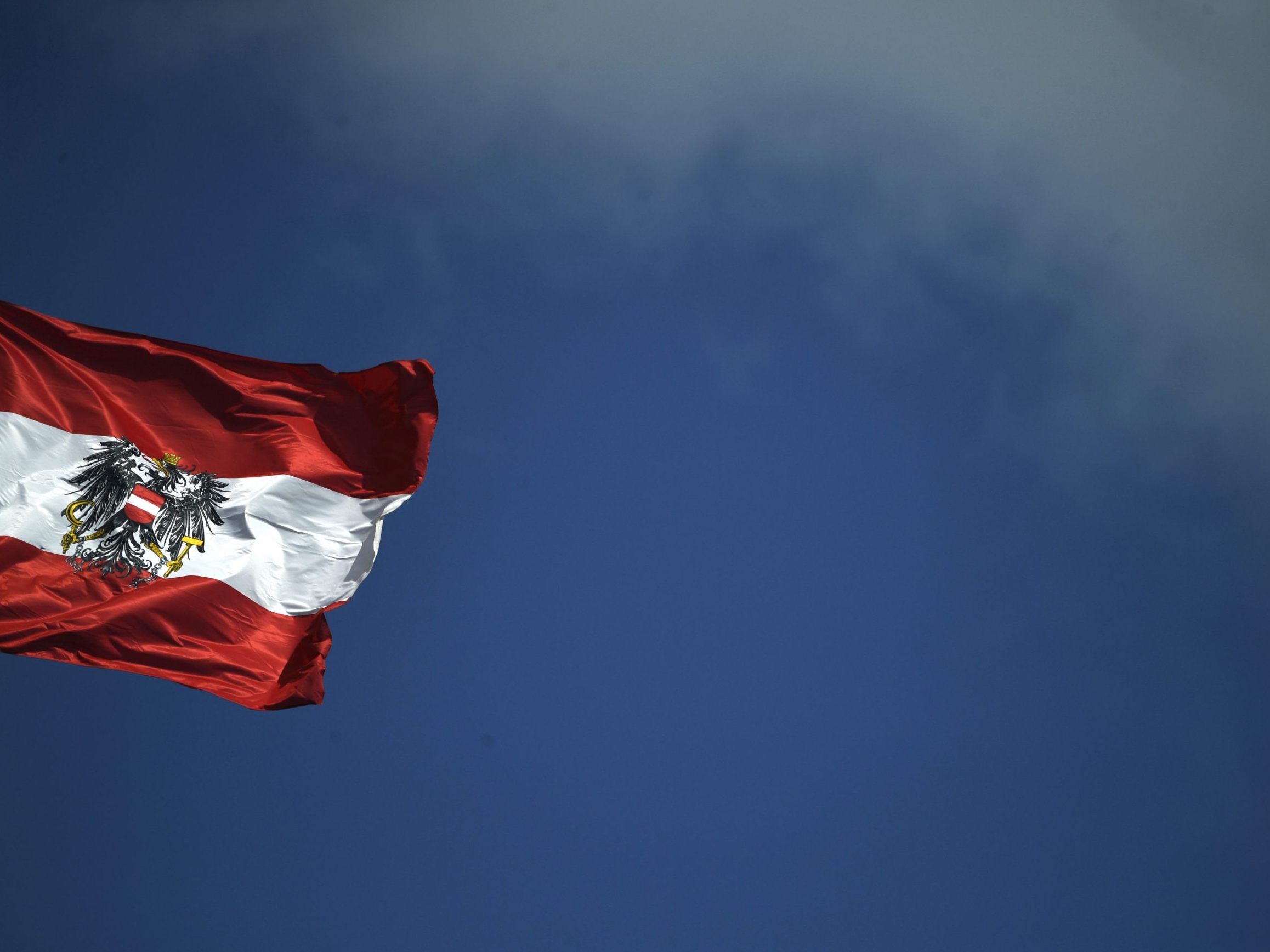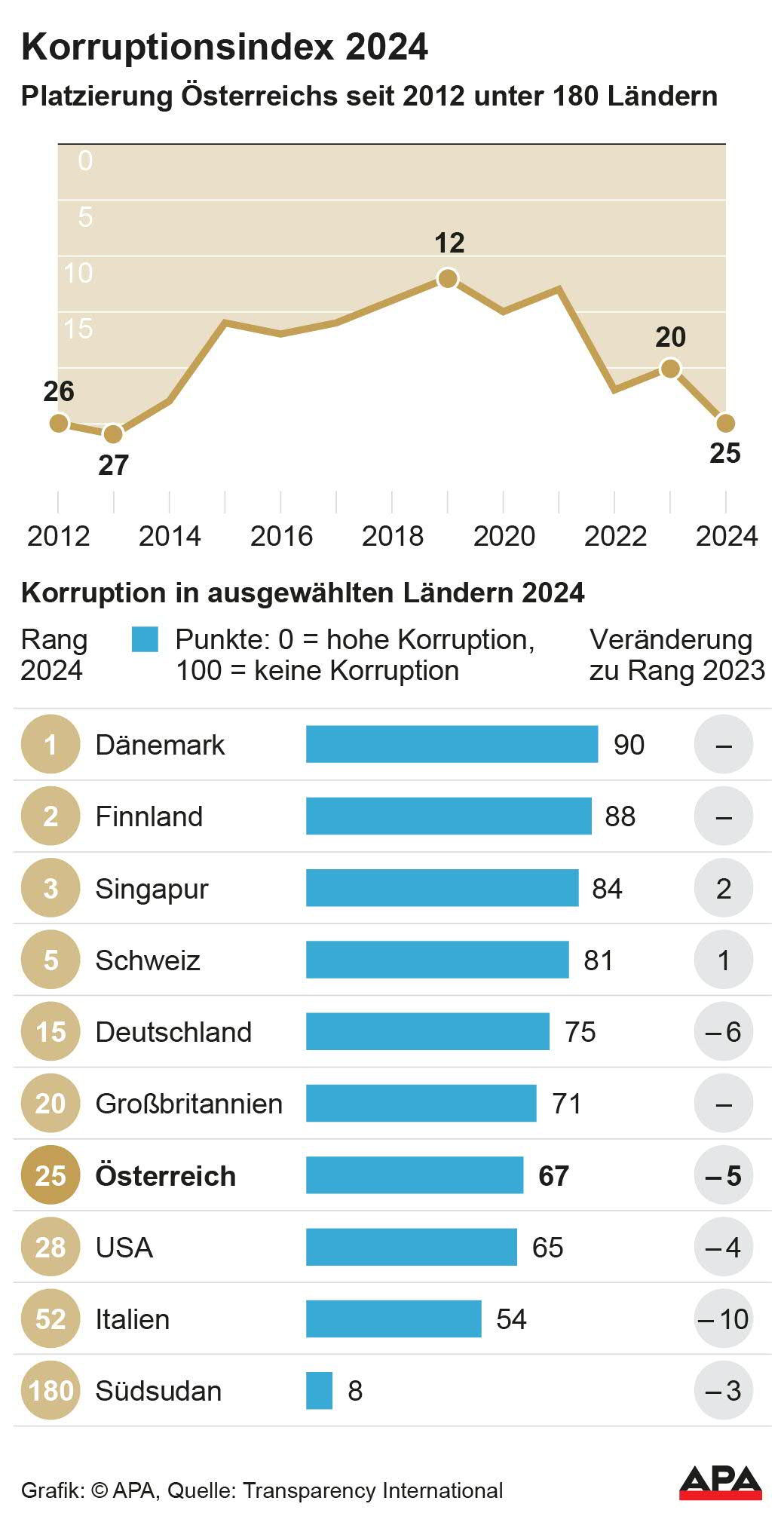```html
Corruption Index: Austria Worse Than Ever Before
```

Austria has performed worse than ever in the 2024 Corruption Perceptions Index by Transparency International (TI), published on Tuesday. 67 out of 100 points this time mean rank 25. Last year, Austria was still in 20th place, and five years ago in 15th place. According to TI, Austria now lags far behind other European countries. For TI-Austria Chairwoman Bettina Knötzl, the negative trend is "shameful."
Deterioration in Corruption Perceptions Index
The recurring political scandals involving cronyism and personal enrichment, attempts at political influence on independent media, and the lack of an independent directive authority for the public prosecutors, especially the Economic and Corruption Prosecutor's Office (WKStA), were cited as reasons for the poorer ranking, according to an APA inquiry. All of this highlights deficiencies in combating corruption and democratic oversight. Additionally, Austria is at the bottom in implementing the Freedom of Information Act.
Since the mid-1990s, the ranking has annually assessed the perception of corruption levels in the public sector by experts and business people, with data sourced from twelve institutions such as the World Economic Forum. The index, which refers to the past three years, captures various forms of corruption like bribery, embezzlement of public funds, or nepotism in public service in 180 countries and territories. Some sources also analyze mechanisms for corruption prevention, the independence of the judiciary, transparency requirements for officials, and access to government information. A score of 0 points stands for widespread corruption, while 100 means no corruption is perceived.
Leaders in the Corruption Perceptions Index
At the top of the ranking in 2024 once again is Denmark with 90 points, followed by Finland (88), Singapore (84), New Zealand (83), Luxembourg, Norway, and Switzerland (each 81). The fact that these countries consistently land at the top of the ranking is attributed by Transparency to their sustainable strategies and consistent implementation in the fight against corruption. Meanwhile, Austria is "among the laggards of Europe," emphasized Knötzl in a statement.

It is high time for a rethinking, as Austria's reputation is suffering massively from the corruption scandals. Transparency is the key to preventing abuse of power and promoting trust in the integrity of decision-makers. The Freedom of Information Act, decided at the beginning of 2024, is indeed a real opportunity for Knötzl to create transparency and trust in public offices. However, since it only comes into force this September, it has not yet been considered in the ranking for 2024.
Appeal from Transparency Austria
Especially in times of political uncertainty, the stability of institutions and the trust of citizens in democracy must be maintained, as this form of government is ultimately the best guarantee for peace and prosperity. Once again, Transparency Austria appealed to the upcoming government to establish an independent directive head for public prosecutors, detached from the Ministry of Justice, within its first year. Additionally, media independence must be strengthened and whistleblower protection improved.
SPÖ justice spokesperson Selma Yildirim described Austria's performance in the corruption index as a "shameful result." In a statement, the SPÖ once again called for the introduction of an independent directive head for the judiciary. The ÖVP has always blocked this initiative so far, said the SPÖ justice spokesperson. "With a possible future government of FPÖ and ÖVP, progress in combating corruption is unlikely to be expected," said Yildirim. Clean, transparent politics and administration must be the goal, and the implementation of the Freedom of Information Act in September is an important step, she explained.
The independent directive head is indeed the most important, but not the only reform in the fight against corruption, explained NEOS deputy club chairwoman Stephanie Krisper. "The people in Austria must be able to trust that everyone is equal before the law," she says. The NEOS proposals have been on the table for years, clean politics and combating corruption must start much earlier, Krisper stated.
(APA/Red)
This article has been automatically translated, read the original article here.





